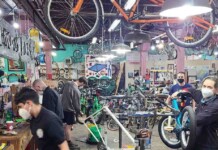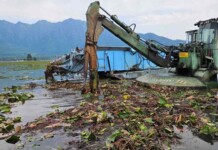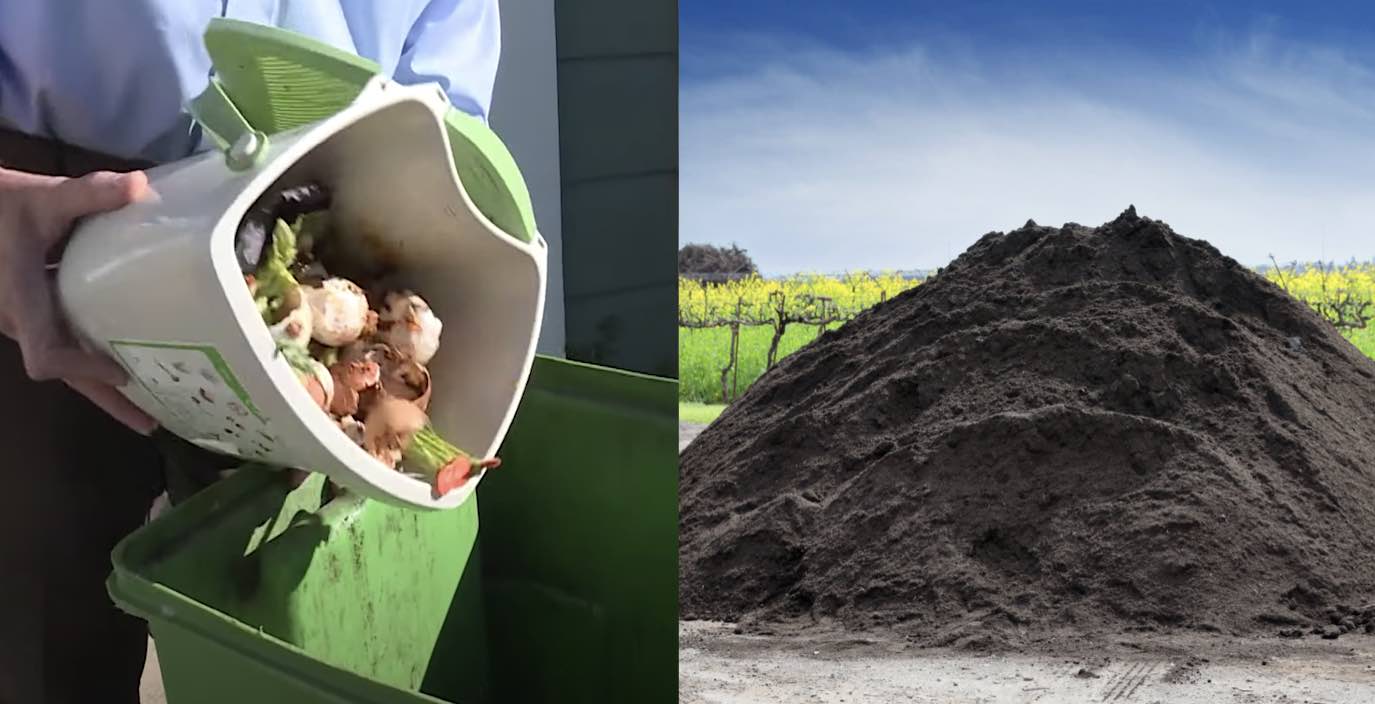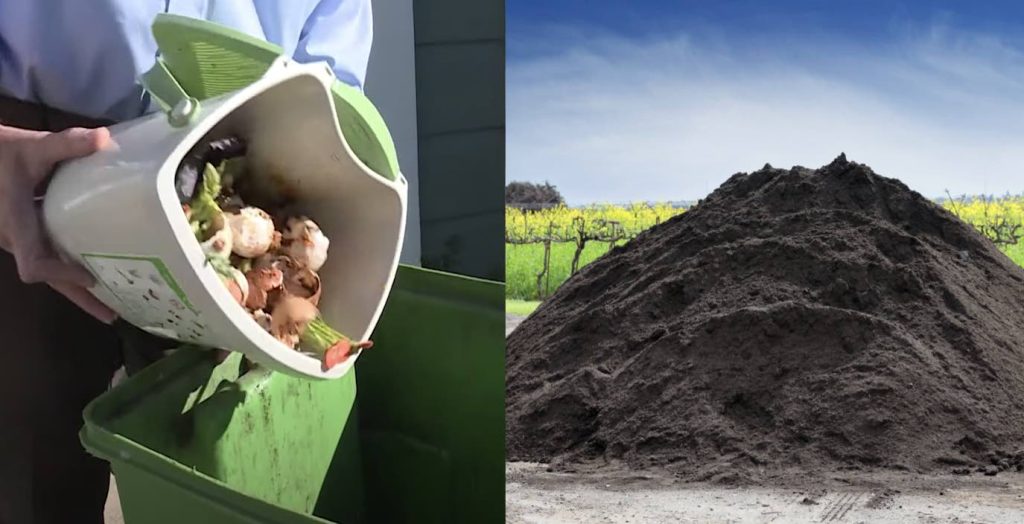
Last week, new water restrictions issued for millions of residents of Southern California highlighted the need to make agriculture more efficient—and a new statewide composting mandate is providing the solution.
California leads the nation in food production, which requires a lot of water, and now because they became the second state in the nation after Vermont to make large-scale composting required by law means we can have our produce ‘cake’ and eat it, too.
Compost Awareness Week, which begins today, may sound superficial, but we need to know that farms can grow up to 40 percent more food in times of drought when they use compost—and when citizens dump their coffee grounds and banana peels into a bin for pick up, they are feeding the soil, while guarding against water shortages.
City composting programs produce thousands of truckloads of finished compost that go onto farms, orchards, and vineyards, creating a natural sponge that attracts and retains moisture. Not only that, the recycling loop is combatting global warming.
Food waste makes up nearly 20% of the stuff in our landfills. When that food decomposes, it releases methane; tens of times more potent than carbon dioxide, it’s one of the main greenhouse gasses fueling the climate crisis, and landfills are the third-largest source of methane emissions in the U.S.
RELATED: New Enzyme Discovery is Another Leap Towards Dissolving Plastic Waste With ‘Amazing Efficiency’
More than 200 cities across the country, and many universities, have followed San Francisco’s lead and implemented curbside collection of food scraps for composting. In compliance with the new law—(SB 1383) requiring California cities to reduce landfilling of compostable materials by 75 percent by 2025—cities up and down California are establishing curbside programs that provide bins for food scraps, sticks, and leaves, so they can be turned into ‘black gold’ compost for farmers.
San Francisco-based Recology, an employee-owned company with a workforce of 3,800 operates 8 composting facilities in California, Oregon, and Washington serving nearly 150 communities. In 2020 alone, they recycled over 810,000 metric tons of organic waste, including food scraps and yard trimmings.
“This program gives individuals, communities and entire municipalities a way to do something very useful to help slow climate change—and to help get carbon out of the atmosphere and back into the soil where it belongs,” said Recology’s Robert Reed.
POPULAR: Plant Opens to Change the Recycling Game by Breaking Down Plastic Bottles With Enzyme From Leaves
San Francisco’s pioneering food scrap collection program, which was maligned as something that would never work, created momentum for the statewide program.
“We started collecting food scraps separately from other trash in 1996,” Reed told GNN. “At the time, executives at the largest garbage companies were quoted in the trade press saying the San Francisco program had never been tried and would not work. They said our trucks would leak and our new program would fail.”
“In fact, our program worked and continues to work extremely well. San Franciscans have embraced curbside composting of food scraps together with sticks and leaves more than any other city in the country.”
CHECK OUT: 60+ Major Companies Sign ‘Radical’ Deal to Dramatically Reduce Plastic Waste in Just 4 Years
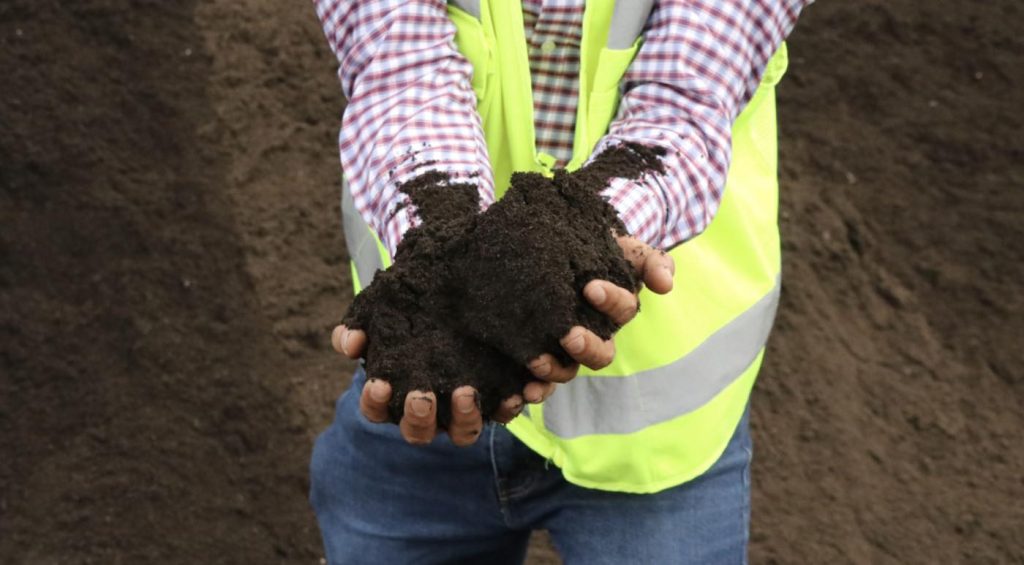
That citywide green-bin program has diverted 2.5 million tons of compostable material from the landfill, which not only saved landfill space and eliminated thousands of tons of methane emissions, but also helped local farms grow more healthy (and tasty) food, using less water and less fertilizer.
“Soil is a living, breathing biomass. So, anything we can do to enhance the improvement of soil is going to improve the water-holding capacity and the water efficiency capacity that is wicked through the plant’s roots,” said agronomist Ed Davis of S&E Organics based in Bakersfield, California. “It also feeds rather than depletes the billions of microorganisms that make soil good for growing.”
Methane generated in landfill vs in compost
Landfill food scraps get buried under dirt, decomposing in an airless environment, while any composting process makes sure those microbes receive air and water, which does generate methane, but far less than would occur at a landfill. However, Recology captures the gasses generated at key stages of the composting process, rerouting them to a series of biofilters, which cut their methane emissions by more than 80 percent.
Delegations from 135 counties have traveled to San Francisco to view this program firsthand, which was implemented later at UC Berkeley and UC Davis, in Marin County and 11 cities in San Mateo County. Even the San Francisco Giants baseball stadium works with Recology toward a goal of Zero Waste.
LOOK: California Erects Solar Panels Over Canal to Save Huge Supply of Water From Evaporation
Oakland, San Jose, and Palo Alto have followed SF’s lead, as has Napa. The state capitol of Sacramento will go live with its curbside composting on July 1.
Recology helped Austin, Texas, prepare their plan for curbside food scrap collection—and also advised officials in Paris, France, to implement a program in two districts.
Other cities adopting the trend—Portland, Seattle, Denver and Boulder, St. Paul and Minneapolis, Baltimore, Anchorage, Eugene, Cambridge, and Ann Arbor, Michigan—prove this is a win-win-win for our landfills, farmers, and the planet.
WATCH the news report about Recology below…
Don’t Scrap This Story! Spread the Awesomeness on Social Media…


